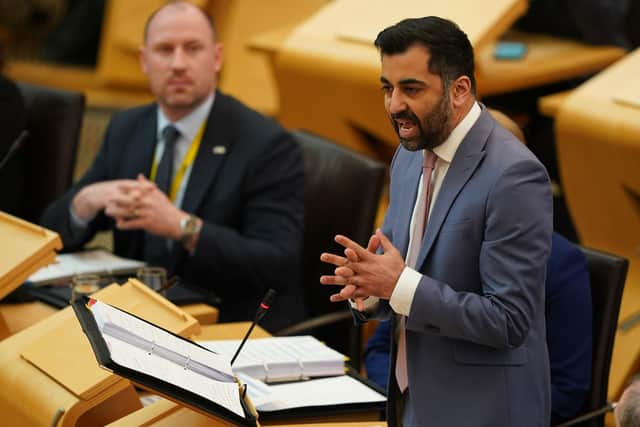Humza Yousaf as Scotland’s new First Minister is a victory for diversity but there are still challenges in battle for equality - Dr Mohammed Ali
Not only that, but it means the leaders of Scotland’s main two political parties are both Muslim men (Anas Sarwar has been leader of the Scottish Labour party since 2021). This comes at a time when Rishi Sunak is Prime Minister and Sadiq Khan is Mayor of London – both of whom are of south Asian heritage.
Humza Yousaf’s victory in the SNP leadership election is another political milestone in the UK, and as somebody who has dedicated the past 33 years of his life to encouraging equal opportunities for ethnic minority communities, I can’t overstate its significance.
Advertisement
Hide AdAdvertisement
Hide AdThe main purpose of QED is to find ways of enabling ethnic minority groups to become active participants in all walks of life in the UK, and to help break down any barriers that prevent them from doing that. From the outset we recognised that employment was one of the crucial factors for social and economic integration, and as a charity we work with businesses, governments, colleges and universities, to highlight the importance of equality, diversity and inclusion. These aren’t just fashionable buzz words, they underpin a move towards greater equality, something that makes a real difference to people’s lives.


It’s just over a quarter of a century since Mohammed Sarwar was elected as Member of Parliament for Glasgow Govan in the 1997 general election, becoming Britain’s first Muslim MP, and now we have a Muslim taking over from Nicola Sturgeon in the top job in Scottish politics. What this does is create a sense of pride among the Muslim community, no matter what their political persuasion, and sends a signal to other ethnic communities in the UK, that with hard work and determination anything is possible.
Yousaf’s rise in the SNP is not only a testament to his talent but also an example of the UK's growing diversity and inclusivity. His parents emigrated from Pakistan to Scotland in the 1960s, seeking better opportunities and a brighter future. This mirrors the experiences of many families that arrived in Yorkshire from India, Pakistan and Bangladesh in the 1950s and 60s and settled in places like Bradford, Dewsbury, and Leeds. There’s no doubt we’ve come a long way – following the General Election in 2019, 66 MPs were from minority ethnic backgrounds. But it’s worth pointing out that if the ethnic make-up of the House of Commons reflected that of the UK population, that figure would be 85. Which is why it would be foolish to think we’ve reached a level playing field. There are still barriers to those from BME communities not only getting top jobs in certain sectors, but even middle management roles – and there are a plethora of studies and reports that back this up.
Research also shows that Muslim communities are more likely to live in areas with high unemployment rates.
Advertisement
Hide AdAdvertisement
Hide AdAt the same time, though, there is a real sense of optimism and a tangible belief that we are starting to create more opportunities for those from ethnic minority backgrounds – and that’s why Humza Yousaf’s story, as the first Muslim leader of a major UK party, feels like another watershed moment in our nation’s story.
Dr Mohammed Ali is founder and chief executive of the QED Foundation.